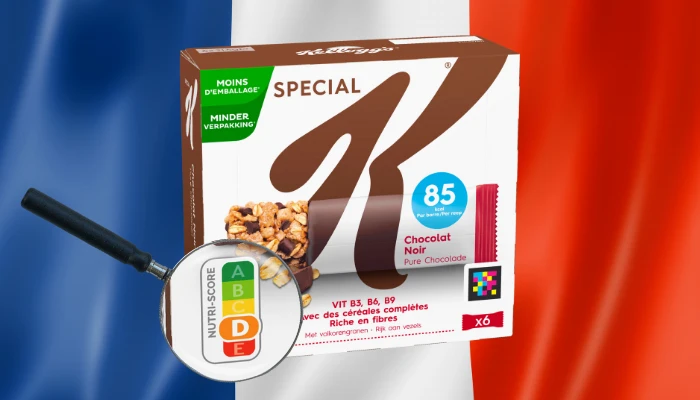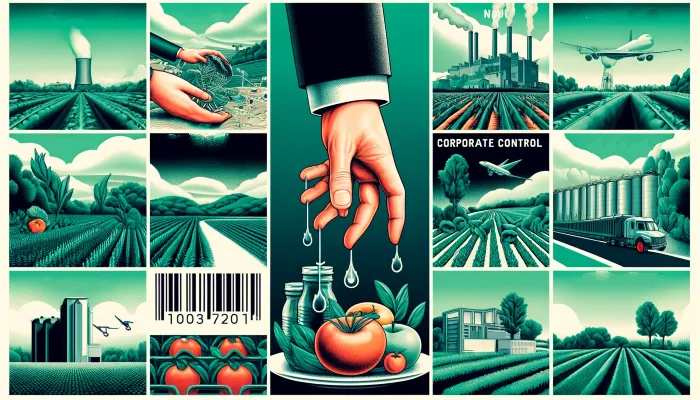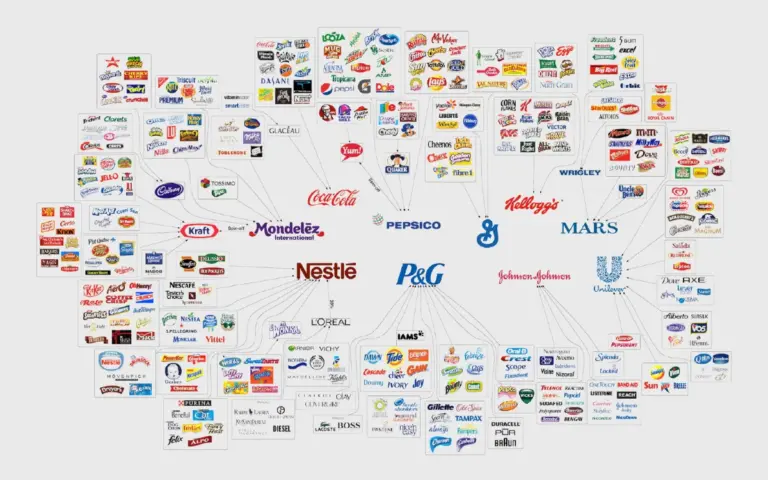In America, breakfast is big business, raking in a staggering $42 billion annually, and it’s only growing. We’ve embraced a cheap food model, and it’s become increasingly challenging to resist the enticing bites advertised on our TV screens. Take, for instance, the ubiquitous breakfast cereals that kids love. These cereals are quickly broken down into glucose in our digestive tracts, providing an instant burst of energy.
Surprisingly, a bowl of Corn Flakes without added sugar is metabolically equivalent to a bowl of sugar without added Corn Flakes. They may taste different, but the effects on our bodies are the same.
Now, let’s rewind to the late 1800s, where a company called Beach Nut emerged as a major player in the food industry. Known for producing everything from peanut butter to mustard and even chewing gum, Beach Nut struck gold with its most lucrative product: bacon.
Yes, they became America’s top bacon producer, and people couldn’t get enough of that sizzling, fat-streaked breakfast staple. Bacon and eggs had been the beloved morning meal for centuries, primarily because they were readily available on farms.
Bacon's Propaganda Comeback
In the agricultural era, when fresh meat wasn’t always accessible, eggs were a reliable source of sustenance, and bacon, thanks to the curing process, could be stored for longer periods. The combination of bacon and eggs became a breakfast tradition.
However, the Industrial Age brought significant changes. People bid farewell to their active farm lifestyles and flocked to cities, immersing themselves in sedentary office jobs that involved hours of sitting.
As a consequence, those office workers who continued to indulge in bacon every morning experienced severe indigestion. The bacon and egg combo that had been a staple was no longer compatible with their new way of life.
This drastic shift led to a decline in bacon sales, jeopardizing the future of Beach Nut and leaving them desperate for a solution.
Enter Edward Bernays, the father of propaganda.
Known for his mastery of mass psychology and altering public behavior, Bernays was the perfect man for the job. You picked up the phone and called Bernays, tasking him with a daunting challenge: revive the bacon and egg breakfast tradition and secure Beach Nut’s survival.
Recognizing the enormous profitability of breakfast, Bernays proposed a different approach. Rather than engaging in direct competition by claiming to have better bacon than their competitors, he aimed to expand the entire breakfast market.
After all, Americans already loved their meat and potatoes for lunch and dinner, leaving little room for increased profits in those meals. But breakfast, ah, that was a different story. Bernays believed that with persuasive propaganda, he could convince the masses to devour mountains of bacon every morning.
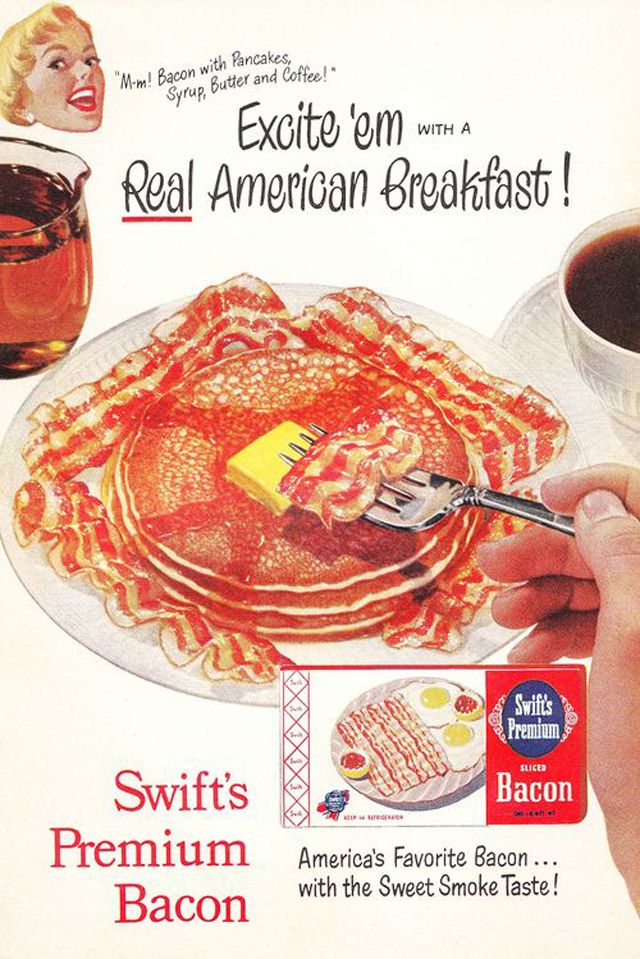
And so, the campaign began. “Bacon and eggs and buttered toast,” they said. “There’s nothing like a good, healthy breakfast to start the day off right.” Bernays sought to associate bacon and eggs with health and vitality, targeting the well-being-conscious Americans. A staggering 4,000 doctors endorsed bacon, claiming it was an essential component of a balanced diet.
The strategy was a success, and bacon soon regained its place on breakfast tables nationwide.
Interestingly enough, this isn’t the only time in American history that bacon fell out of favor for health reasons only to be resurrected with a clever marketing campaign.
Cereal's Rise
While you were busy devising your bacon propaganda campaign, another player was quietly formulating his own breakfast strategy. This man, however, had a different vision.
John H. Kellogg, the founder of Kellogg’s cereal, aimed to promote a lighter, easier-to-digest breakfast made of cereal. But what led him down this path may surprise you.
By the age of 16, John Kellogg was already immersed in writing and publishing literature for the church. He would go on to adopt some of the church’s more peculiar beliefs, including the notion that masturbation and sex were off-limits.
To suppress these so-called “sins of the flesh,” Kellogg preached against consuming meat, as he believed it heightened sexual desire. And so, the idea of cornflakes was born—an attempt to curb those desires through breakfast cereal.
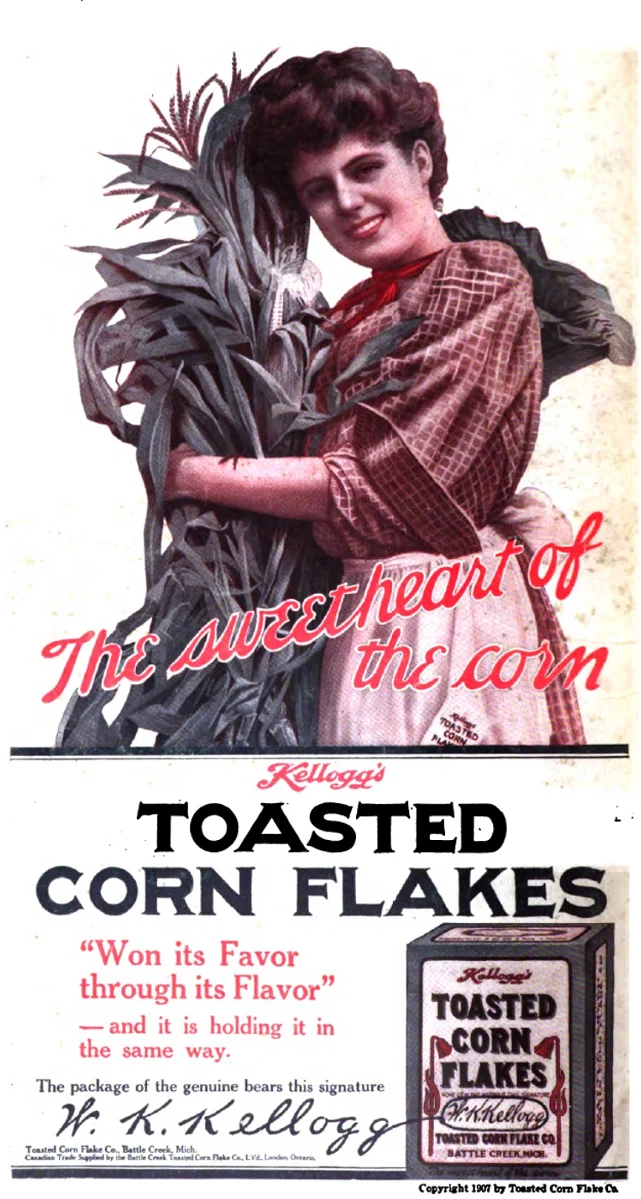
And thus, the battle for the most lucrative meal of the day commenced, with casualties being our health and stomachs. The average American child is bombarded with 10,000 food advertisements each year, and a staggering 95% of these ads promote sugared cereals, soft drinks, fast foods, or candy. It’s no wonder that our eating habits are influenced by these pervasive marketing campaigns.
Junk food companies today resemble the tactics employed by tobacco companies decades ago, manipulating the public to consume their unhealthy products.
In the future, we may look back in disbelief, wondering how we allowed them to get away with it. Sadly, the kind of food we consume is often driven by profitability rather than nutritional value.
It’s not just the American breakfast that tends to be detrimental to our health; it’s the overall American diet. That’s why many people experience a sense of improved well-being when they travel and sample the cuisines of countries like Europe and Asia. We highly recommend exploring these diverse culinary traditions.
Before the era of IHOP, Sugar Crisp, and Waffle Tacos, breakfast consisted of whatever people desired, sometimes even leftovers from the previous night’s meal.
In the medieval period, breakfast was a meal reserved for the poor, who often suffered from malnourishment due to inadequate previous meals. Going further back in time, ancient Romans consumed only one substantial meal each day.
Interestingly, these eating patterns align with what is now known as intermittent fasting.
If you still prefer to have breakfast, consider the practices of countries like China, India, and Japan, where rice and noodle dishes are enjoyed for breakfast, just as they are for lunch and dinner. These cultures thrive without a daily dose of corn flakes, proving that our breakfast choices can be diverse and nutritious.
Speaking of alternative milk options, oat milk has gained immense popularity in recent years.
Marketed as a healthy, plant-based substitute for real milk, oat milk has captured the attention of the masses.
However, the truth is that oats and water alone don’t offer a pleasant taste. To compensate, manufacturers add a plethora of concerning ingredients such as seed oils, glyphosate, and food additives to enhance flavor. Researchers predict that many of these additives will soon be banned due to their potential health risks.
Yet, with a catchy brand name like Oatly and clever modern-day propaganda, oat milk has successfully fooled the masses. People perceive it as a cool and wholesome choice without fully understanding the hidden pitfalls. The truth behind the production and marketing of oat milk, along with other deceptive food practices, we exposed in this article!
Top 9 Revelations: Cheatsheet
Breakfast is a $42 Billion Industry: The enormity of the breakfast industry in America is huge, and it’s serious business.
Metabolic Equivalence of Corn Flakes and Sugar: The surprising revelation that a bowl of Corn Flakes without added sugar is metabolically equivalent to a bowl of sugar is a stark illustration of how misleading certain “healthy” breakfast options can be. Think about that for a minute… it’s horrifying.
Beach Nut’s Bacon Propaganda: The story of how Beach Nut became America’s top bacon producer and later saved its declining sales through a propaganda campaign orchestrated by Edward Bernays. Bacon isn’t healthy, but that powerful marketing campaign has most of us enjoying it regularly.
Edward Bernays and the Expansion of the Breakfast Market: The strategic decision by Bernays to not just sell more bacon, but to expand the entire breakfast market by associating bacon and eggs with health and vitality, was a major turning point in food marketing.
John H. Kellogg’s Cereal Vision: The origin of Kellogg’s cereal, rooted in John H. Kellogg’s beliefs and the aim to suppress certain desires, reveals an unexpected and somewhat bizarre backstory to one of the most popular breakfast choices.
Influence of Advertising on Eating Habits: The article points out the alarming statistic that the average American child is exposed to 10,000 food advertisements a year, predominantly promoting unhealthy food options, drawing a parallel with tactics used by tobacco companies.
Cultural Reflections on Breakfast: The discussion on how the American breakfast, and diet in general, compares unfavorably to those in Europe and Asia, encourages readers to explore and appreciate diverse culinary traditions.
The Rise of Oat Milk and its Misconceptions: The exploration into the popularity of oat milk, the additives used to enhance its flavor, and the marketing strategies that have misled consumers about its health benefits, is a poignant example of how modern-day propaganda influences our food choices.
Historical and Cultural Context of Breakfast: The article provides intriguing insights into the evolution of breakfast from the medieval period to the present, including the practice of intermittent fasting and the traditional breakfast habits of countries like China, India, and Japan.
More To Discover
- 10 Untold True Stories Behind America’s Favorite Breakfast Cereals
- The Great Oat Milk Scam: The Marketing Ploy That Fooled Us All
- The Crazy Cereal Czar: Dr. John Harvey Kellogg’s Path to Cereal Icon Includes Extreme Beliefs, Celebrities, And Less Than Altruistic Adoptions
- Ultimate Homestead Guide To Keeping Goats For Meat, Milk, and Leather
Conclusion
But let’s pause and reflect. Is a breakfast without bacon and eggs really like a dog without a bone? Is our sugary cereal in the morning really making us eat less and get healthier? Perhaps not.
The truth is, our food choices profoundly impact how we look and feel.
While the bacon and egg combo may provide a satisfying morning meal, it’s essential to consider alternatives that support our health and well-being. A nutritious breakfast can incorporate a variety of options, offering sustained energy, improved digestion, and overall vitality.
As we navigate the breakfast landscape, let’s be mindful of the propaganda that shapes our choices. Breakfast can be a time of exploration and experimentation, embracing healthier alternatives while still enjoying delicious flavors.
By embracing a diverse range of nutritious options and avoiding the traps of misleading advertising, we can reclaim our breakfasts and make informed decisions that prioritize our health and well-being.










